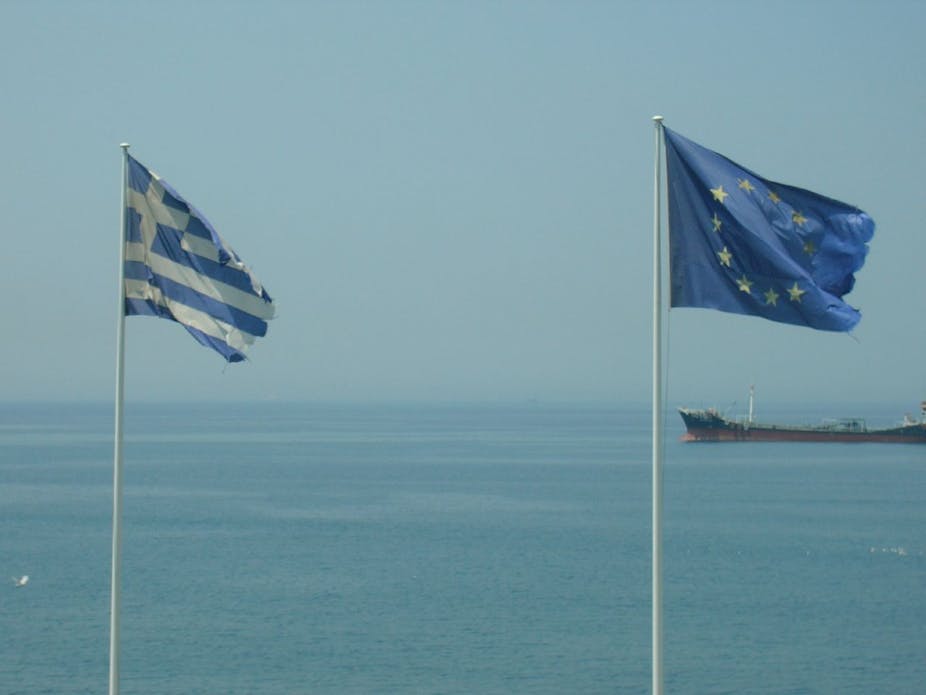The latest political crisis in Greece began with a spat over the future of public tv and radio. The fragile political consensus among the three-way government coalition was finally broken with one party leaving the coalition, despite continued negotiations about the shape of a new national broadcaster.
The Greek Prime Minister has reshuffled his cabinet to try and restore some stability. This latest coalition government now needs to start delivering within the tight deadlines required to access the next tranche of bailout funds. Dysfunctional politics is not the best way to cultivate the emerging “green shoots” in the Greek economy.
With unemployment at 27%, there was a feeling that Greece had hit the bottom of the curve and was on the way up. Foreign investment was beginning to reach the country again. Fairfax, a Canadian holding company, announced it is investing €164m in the Greek property market. Fairfax has form for investing in countries on the rebound: their 2011 investment in Bank of Ireland has risen 50%. In the energy market, State Oil Company of Azerbaijan Republic (SOCAR) has reached a fundamental agreement to acquire a 66% stake in Greece΄s gas transportation system operator DESFA.
TV turn-off
But the shutdown of the Hellenic Broadcasting Corporation (ERT) by the Greek government has sparked strong reactions and a political crisis, with the Democratic Left party eventually withdrawing its support from the government.
What a difference a day makes. On Wednesday night, the indicators were that the leaders of the three political parties comprising the Greek government were close to an agreement, with all of them agreeing that ERT needed to reform. The following day one of the parties left the coalition - yet with all three still agreed on the need to reform ERT.
So while the principal target (reforming ERT) was shared among the parties, disagreement over the way the new national broadcaster would emerge caused the crisis. Of course, politics is not as straightforward as management – we don’t expect it to be – yet managing change in public organisations is not an area where politics is known to excel.
Before the crisis, in 2009, ERT had 4,553 staff and until a few days ago 2,907 remained. It cost about €300m (£256m) a year to run and was primarily funded by a monthly fee added to the electricity bill of each Greek household.
Despite efforts in the past few years to restructure the corporation and redesign its business model, no significant change of strategic direction has taken place. Employees have strongly resisted any restructuring efforts, and strikes have been common. Critics of ERT’s business model point to a slow-to-adapt organisation where political parties were able to satisfy their electorate by offering them employment. Also, they argue that ERT did not change its internal processes, as other private media have done. This resulted in over-staffing areas that are no longer in demand, while having to rely on outside suppliers for new services.
Troika troubles
The Greek government remains concerned about securing its next tranche of funding from its creditors, a group known as the troika, comprising the European Central Bank, the International Monetary Fund and European Commission. Beyond ERT, Greece has committed to dismissing 15,000 public servants by the end of 2014 (of which it needs to shed 2,000 by the end of July and 4,000 by the end of 2013).
Greek officials have confirmed that the troika asked them for “game-changing” reforms in the public sector. One of these measures is about changing the perceptions that a public sector job is “for-life” by actively reducing the public sector work force. Yet, the 2,907 ERT employees represent only a very small proportion of the 650,000-strong public work force and ERT was actually profitable in recent years. It now appears that this decision was aimed at signalling further future radical reforms across the Greek public sector.
Radical reforms, though, are more-and-more challenging to implement in austerity-hit countries. With unemployment still high, the issue is not so much about political instability but also maintaining an acceptable level of societal well-being.
There are two increasingly important dimensions to Greek policymaking. First, the pain associated with the reforms needs to be shared in a fair and just way, an issue of paramount importance for societal coherence. Second, there should be more concentrated efforts to foster and grow the “green shoots” in particular industries.
Tricky situation
But Greece’s political class finds itself in a very tricky situation. Radical new policies - yes, including job losses and welfare cuts - are necessary to promote growth. But the very nature of these reforms mean they are especially hard to carry out in a recession. Telling 3,000 people they are out of work is tough at the best of times. Six years into a recession, it is harder than ever.
The struggle to reform ERT is a microcosm of the wider problems in Greek public policy. If the government cannot fix a broadcaster without the coalition falling apart, what chance do pension or labour market reforms have? The added complication here is that these reforms need to be first approved by the troika of creditors - so appropriate negotiations need to first take place before any policy is agreed by the Greek government.
The worry is that a sense of inertia could take over. If Greek policymakers are seen to be struggling to piece together the political consensus required to push through serious reforms, then the confidence needed to spur back economic growth in the country won’t become a reality. This is something that the Greek economy desperately needs, and so do Greek people.

